2022-2026
Distinguished Professor:
Prof. Amirhossein Gandomi
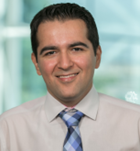
Amir H. Gandomi is a Professor of Data Science and an ARC DECRA Fellow at the Faculty of Engineering & Information Technology, University of Technology Sydney. Prior to joining UTS, Prof. Gandomi was an Assistant Professor at Stevens Institute of Technology, USA and a distinguished research fellow at BEACON center, Michigan State University, USA. Prof. Gandomi has published over three hundred journal papers and 12 books which collectively have been cited 31,000+ times (H-index = 81). He has been named as one of the most influential scientific minds and recognized by Highly Cited Researcher award (top 1% publications and 0.1% researchers) for five consecutive years, 2017 to 2021. He is ranked 17th in GP bibliography among more than 15,000 researchers and ranked as the 59th most impactful researcher in the area of AI and Image Processing based on a study led by Stanford University. Prof. Gandomi has received multiple prestigious awards for his research excellence and impact, such as the 2022 Walter L. Huber Prize which is known as the highest level mid-career research award in all areas of civil engineering. He has served as associate editor, editor, and guest editor in several prestigious journals such as AE of IEEE TBD, IEEE Networks, and IEEE IoTJ. Prof Gandomi is active in delivering keynotes and invited talks. His research interests are global optimisation and (big) data analytics using machine learning and evolutionary computations in particular.
Citations: 31354
Hirsch index 81
Prof. Seyedali Mirjalili
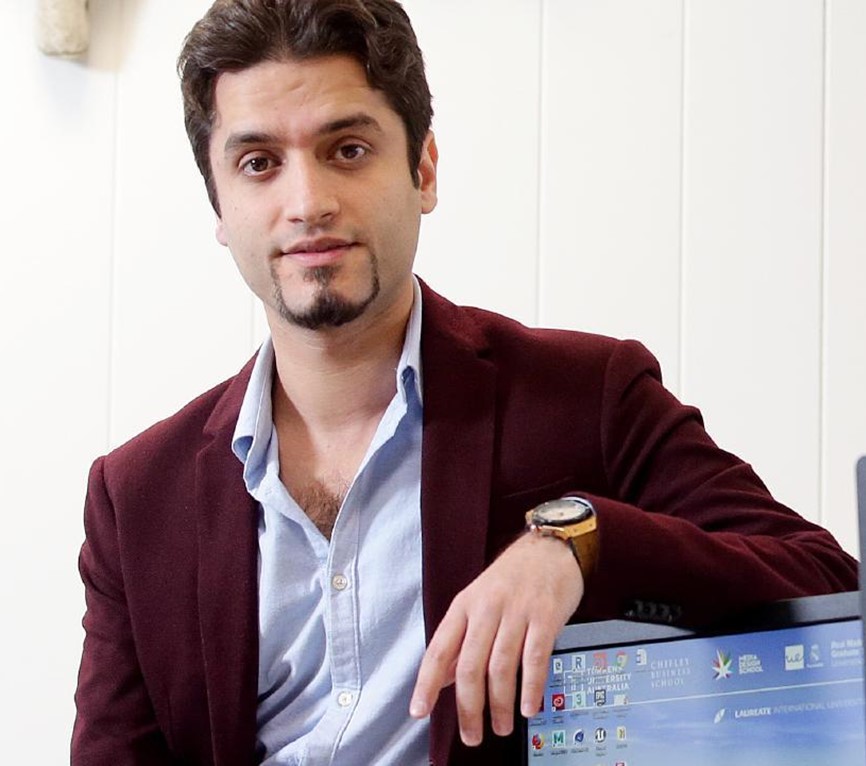
Professor Seyedali Mirjalili is the founding director of the Centre for Artificial Intelligence Research and Optimization at Torrens University Australia. He is internationally recognized for his advances in Optimization and Swarm Intelligence, including the first set of algorithms from a synthetic intelligence standpoint – a radical departure from how natural systems are typically understood – and a systematic design framework to reliably benchmark, evaluate, and propose computationally cheap robust optimization algorithms.
Prof. Mirjalili has published over 300 publications with over 50,000 citations and an H-index of 77. He has been on the list of 1% highly-cited researchers and named as one of the most influential researchers in the world by Web of Science for three consecutive years. In 2021, The Australian newspaper named him as the top researcher in Australia in three fields of Artificial Intelligence, Evolutionary Computation, and Fuzzy Systems. Prof. Mirjalili is a senior member of IEEE and an editor of several AI journals including Neurocomputing, Applied Soft Computing, Advances in Engineering Software, Computers in Biology and Medicine, Healthcare Analytics, Decision Analytics, and Applied Intelligence. His research interests include Optimization, Swarm Intelligence, Evolutionary Algorithms, and Machine Learning.
Citations: 54663
Hirsch index: 77
Prof. Andrea De Gaetano
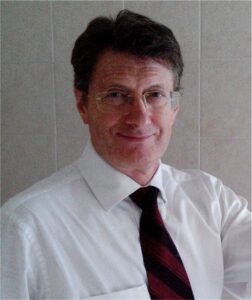
Andrea De Gaetano is a biomathematician with Director of Research (full professor) tenure with CNR since 2001, currently working as Director of the CNR Institute for Biomedical Research and Innovation. A certified emergency surgeon by training (Italy), he attained both M.Sc. (USA) and Ph.D. (France) degrees in Applied Mathematics, is a J.D. with Italian Bar license and has received a Doctor Honoris Causa (Statistics) from Óbuda University, Budapest. He is Adjunct Professor of Mathematical Statistics, Mahidol University Dept. of Mathematics, Bangkok Thailand.
His research interests focus on the mathematical modelling of physiological systems with ODEs, Stochastic and Fractional differential equations, and on the attending estimation of the model parameters from experimental observations. He has published so far over 200 full-length papers on international peer-reviewed journals, largely on the mathematical modelling of energy metabolism (Google Scholar metrics: 250 documents, 9879 citations, h-index 44). He has taught Mathematical Statistics at the Universities of Urbino, Copenhagen and Mahidol Bangkok. He has obtained approx 4.5 MEuro funding for research through a series of EC-financed FP and H2020 projects as well as several Italian projects (Ministry of Research, Ministry of Defense). He has been president of the European Society for Mathematical and Theoretical Biology, as well as Italian National Academic delegate at the NATO STO Human Factors and Medicine Panel and at the European Defense Agency Captech Simulation.
Google Scholar
Citations: 9882
Hirsch index: 44
Applied mathematics MSc dissertation topic
Immunity and cancer: estimating lymphocyte population dynamics and migration towards tumour cell targets
Consolidator Excellence Researcher:
Prof. Dr. László Szilágyi
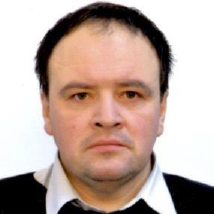
Dr habil. László Szilágyi, Associate Professor at Óbuda University. His research interests include image processing, pattern recognition, artificial intelligence and bioinformatics. He has published 23 peer-reviewed journal articles and more than 100 international conference presentations, with an impact factor of more than 31, more than 800 independent citations and an h-index of 13.
He is a two-time recipient of the János Bolyai Research Fellowship of the Hungarian Academy of Sciences (2010 2018). He has been a member of the Asia-Pacific Neural Network Society (APNNS) since 2015 and a program committee member of the annual International Conference on Modeling Decisions in Artificial Intelligence (MDAI) since 2012. He is also co-founder of the startup HandInScan ZRT. Hungary ( www.handinscan.com), a multi-award winning technology for hospital infection control.
Citations: 4618
Hirsch index: 25
Prof. Dr. Sándor Kristály

Sándor Kristály Hungarian mathematician and university professor from Transylvania.
Graduated in mathematics from the Babeș-Bolyai University (BBTE) in 1997, assistant professor at the Faculty of Mathematics and Informatics of BBTE from 1998-2003. From 2003 to 2007, he was an adjunct professor at the Faculty of Economics and Management of the BBTE in Sfântu Gheorghe, from 2007 to 2013 he was an associate professor and from 2013 he was a professor at the same university.[4] Since 2016, he has also been a professor at the Institute of Applied Mathematics of the Neumann János Óbuda University, Faculty of Informatics. His research interests include variational calculus, critical point theory, geometric analysis, Riemann-Finsler geometry.
Citations: 2292
Hirsch index: 28
Starting Excellence Researcher:
Amir Mosavi, PhD.
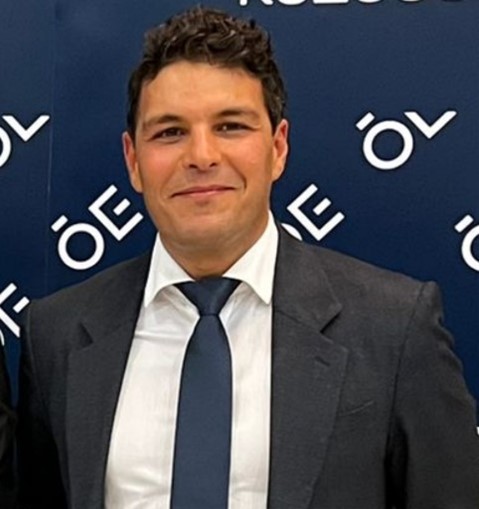
Amir Mosavi is a data scientist. He completed his graduate studies in Engineering at London Kingston University and obtained his Ph.D. in Applied Informatics. He was a postdoc fellow at the Norwegian University of Science and Technology, Bauhaus University of Weimar, Germany, and Oxford Brookes University, UK. He was a visiting fellow at the Queensland University of Technology, TU-Dresden, and Norwegian University of Life Sciences, and recently a visiting professor at the German Research Center for Artificial Intelligence.
His research interests focus on applied machine learning. He is the recipient of the Green-Talent award, Alexander von Humboldt award, UNESCO Young Scientist award, Alain Bensoussan fellowship, GO STYRIA award, Estonian Dora Plus grant, Estophilus scholarship, Future Talent TU Darmstadt, the World Academy of Sciences UNESCO award, Marie Curie, Endeavour-Australia Leadership, Talented Young Scientist award, and the awardee of the European Research Consortium for Informatics and Mathematics Fellowship. He has published his work in numerous full-length articles in various international peer-reviewed journals. Since 2019 he appeared in the list of the top 2% scientists.
Google Scholar
Citations: 18000
Hirsch index: 70
Dániel András Drexler, PhD
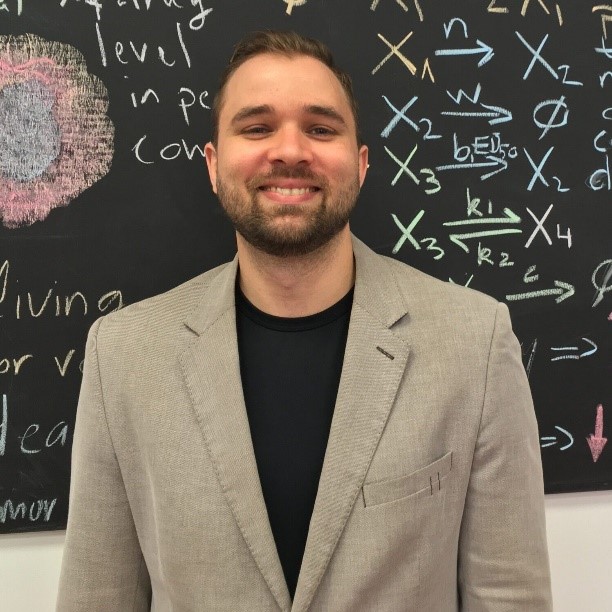
Dániel András Drexler is an electrical engineer (MSc, Budapest University of Technology and Economics, BUTE), biomedical engineer (MSc, BUTE), applied mathematician (MSc, BUTE), and holds a PhD in electrical engineering science (BUTE). He is an associate professor at Óbuda University, John von Neumann Faculty of Informatics, and vice deputy head of Physiological Controls Research Center, Óbuda University.
His research interests focus on the mathematical modelling of physiological systems, control of positive systems, control of impulsive systems. He has published 127 papers (journal papers, conference proceedings, and book chapters), his Google scholars metrics are: 1103 citations, h-index 17. He is a subproject leader in two R&D projects of Óbuda University. He has taught at BUTE and currently teaching at Óbuda University. He is the membership development officer of the IEEE Hungary Section, vice president of the IEEE Hungary Section, and the secretary of the IEEE Systems, Man, and Cybernetics Hungary Chapter.
Google Scholar
Citations: 1103
Hirsch index: 17
2023-2027
Distinguished Professor:
Prof. Habib Zaidi
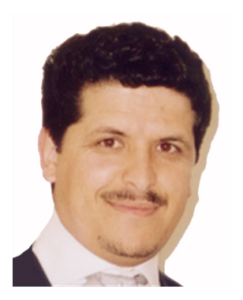
Habib Zaidi is Chief physicist and head of the PET Instrumentation & Neuroimaging Laboratory at Geneva University Hospital and full Professor at the medical school of Geneva University. He is also a Professor at the University of Groningen (Netherlands), the University of Southern Denmark (Denmark). His research is supported by the Swiss National Foundation, the European Commission, private foundations and industry (Total 8.8M US$) and centres on hybrid imaging instrumentation (PET/CT and PET/MRI), computational modelling and radiation dosimetry and deep learning. He was guest editor for 13 special issues of peer-reviewed journals, serves as founding Editor-in-Chief (scientific) of the British Journal of Radiology (BJR)|Open, Deputy Editor for Medical Physics and on the editorial board of leading journals in medical physics and medical imaging. He has been elevated to the grade of fellow of the IEEE, AIMBE, AAPM, IOMP, AAIA and the BIR. His academic accomplishments in the area of quantitative PET imaging have been well recognized by his peers since he is a recipient of many awards and distinctions among which the prestigious (100’000$) 2010 Kuwait Prize of Applied Sciences (known as the Middle Eastern Nobel Prize) and the 2019 Khwarizmi International Award given by the Iranian Research Organization for Science and Technology (IROST).
Prof. Zaidi has been an invited speaker of over 160 keynote lectures and talks at an International level, has authored over 385 peer-reviewed articles in prominent journals and is the editor of four textbooks.
Citations: 19600
Hirsch index: 73
Prof. Peng Shi
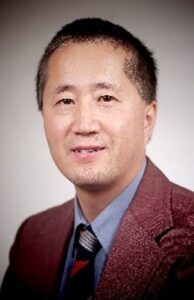
Peng Shi received the PhD degree in Electrical Engineering from the University of Newcastle, Australia, the PhD degree in Mathematics from the University of South Australia, the Doctor of Science degree from the University of Glamorgan, UK, and the Doctor of Engineering degree from the University of Adelaide, Australia. He is now a Distinguished Professor at the School of Electrical and Mechanical Engineering, and the Director of Advanced Unmanned Systems Laboratory, at The University of Adelaide, Australia.
His research interests include systems and control theory and applications to autonomous and robotic systems, cyber-physical systems, and multi-agent systems. He received the Ramesh Agarwal Life-time Achievement Award from the International Engineering and Technology Institute in 2023, the MA Sargent Medal Award from Engineers Australia in 2022; the honor of Life-time Achiever Leader-Board and Field Leader from The AUSTRALIAN Research Review from 2019-2022, the recognition of a Highly Cited Researcher from Thomson Reuters from 2014-2022, the Outstanding Research Achievement Award from The University of Adelaide in 2020, the Chancellor’s Medal for Outstanding Research Performance from Victoria University, Australia in 2018. He has received a number of Best Paper awards, including the Andrew Sage Best Transactions Paper Award from IEEE SMC Society in 2016, Most Cited Paper Award from Signal Processing in 2009, and the Lotfi Zadeh Best Paper Award from the International Conference on Machine Learning and Cybernetics in 2019. Currently he serves as the Editor-in-Chief of IEEE Transactions on Cybernetics, a Senior Editor of IEEE Access, and an editorial member for a number of journals, including Automatica and IEEE Transactions on (Artificial Intelligence, and Circuits and Systems). His professional services also include as the President of the International Academy for Systems and Cybernetic Sciences, the Vice President of IEEE SMC Society, and IEEE SMC Society Distinguished Lecturer. He is a Fellow of IEEE, IET, IEAust and CAA, and a Member of the Academy of Europe.
Consolidator Excellence Researcher:
Prof. Dr. Tamás Haidegger
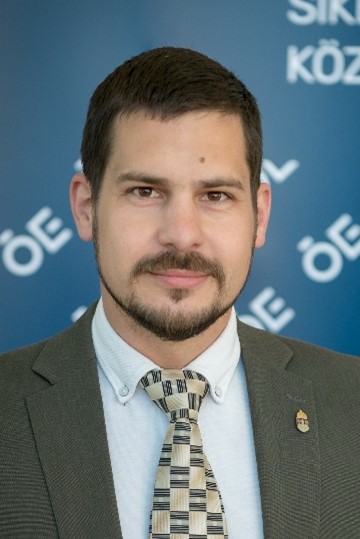
Tamás Haidegger received his MSc degrees from the Budapest University of Technology and Economics (BME) in Electrical Engineering and Biomedical Engineering, then PhD in medical robotics. He received habilitation from Óbuda University in 2022. His main field of research is on medical technologies, control/teleoperation of surgical robots, image-guided therapy and digital health technologies. Currently, he professor at Óbuda University, serving as the director of the University Research and Innovation Center (EKIK), and as the technical lead of medical robotics research at the Antal Bejczy Center for Intelligent Robotics. Besides, he is a research area manager at the Austrian Center of Medical Innovation and Technology (ACMIT), working on minimally invasive surgical simulation and training, medical robotics and usability/workflow assessment through ontologies. Tamás is the co-founder of a university spin-off—HandInScan—focusing on objective hand hygiene control in the medical environment, member of the World Health Organization POPS group. He is an active member of various other professional organizations, including the IEEE Robotics and Automation Society (serving as an associate VP), IEEE SMC, IEEE EMBS, IEEE SA and euRobotics aisbl, holding leadership positions in the IEEE Hungary Section as well. He is a national delegate to the ISO TC299 standardization committee focusing on the safety and performance of medical robots and the ISO TC 304 working on hand hygiene and patient safety standards, furthermore, involved in the IEEE Global Initiative on Ethics of Autonomous and Intelligent Systems. He is co-Editor-in-Chief of Acta Polytechnica Hungarica and Associate Editor to the IEEE Trans. on Medical Robotics and Bionics, the IEEE Robotics and Automation Magazine and the Intl. J. of Computer Assisted Radiology and Surgery. Tamas is the author and co-author of over 300 scientific papers, books, articles across the various domains of biomedical engineering, with over 4000 independent citations to his work. He has been running a professional blog on medical robotic technologies for over 15 years: surgrob.blogspot.com.
Contact details:
Tamás Haidegger
Email: haidegger@ieee.org
Phone: +1-650-6915686
Researchgate: https://www.researchgate.net/profile/Tamas-Haidegger
Personal website: http://surgrob.blogspot.com/
Citations: 4400+
Hirsch index: 33
2024-2028
Distinguished Professor:
Consolidator Excellence Researcher:
Prof. Dr. József Kövecses

Prof. József Kövecses is a member of the Department of Mechanical Engineering at McGill University and Director of the Applied Dynamics Group at CIM. His main research interests are modelling, dynamics, simulation and control of mechanical systems. In these areas, he has led numerous research projects, published numerous papers, and served on the editorial boards and scientific committees of prestigious journals and conferences.
Citations: 2404
Hirsch index: 27
Prof. Dr. Péter Galambos
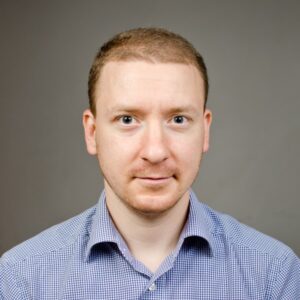
Péter Galambos received his B.Sc. and Ph.D. degrees in Mechanical Engineering from the Budapest University of Technology and Economics (BME) in 2006 and 2013, respectively.Between 2007 and 2008 he was a research intern at Toshiba Corporate Research and Development Center, and then joined the Institute of Computer Science and Control (MTA-SZTAKI), where he was a “Young Researcher” fellow of the Hungarian Academy of Sciences between 2010 and 2012. From 2011 until the end of 2015, he worked as a team leader at MTA-STAKI and coordinated the development of the VirCA VR system and its research applications. Associate Professor, appointed as Director of the Antal Bejczy Intelligent Robotics Centre (Óbuda University, Budapest). Current research interests include telerobotics, networked control systems, nonlinear and delayed feedback systems and 3D virtual reality-based collaboration.
Citations: 1888
Hirsch index: 23
Starting Excellence Researcher:
Dr. György Eigner
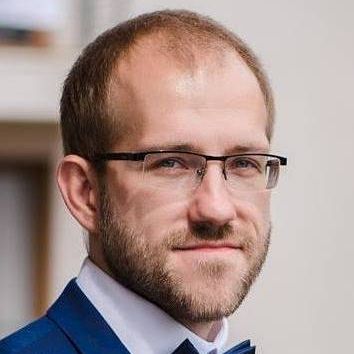
György Eigner is the Dean of the Neumann János Óbuda University’s Faculty of Informatics, the professional head of the University’s Science and Innovation Park in Zsámbék, researcher and principal investigator of several national and international projects, and supervisor of the Faculty’s Master’s programme in Hospital and Medical Engineering. His research interests include cyber-medical systems, physiological control, artificial intelligence applications – in which areas he is the author and co-author of more than 150 scientific and scientific publications. He is a co-editor of several international publications and a member or officer of IEEE, IFAC, MTA Public Body, EMBC, MRK ITB.
Citations: 894
Hirsch index: 15

